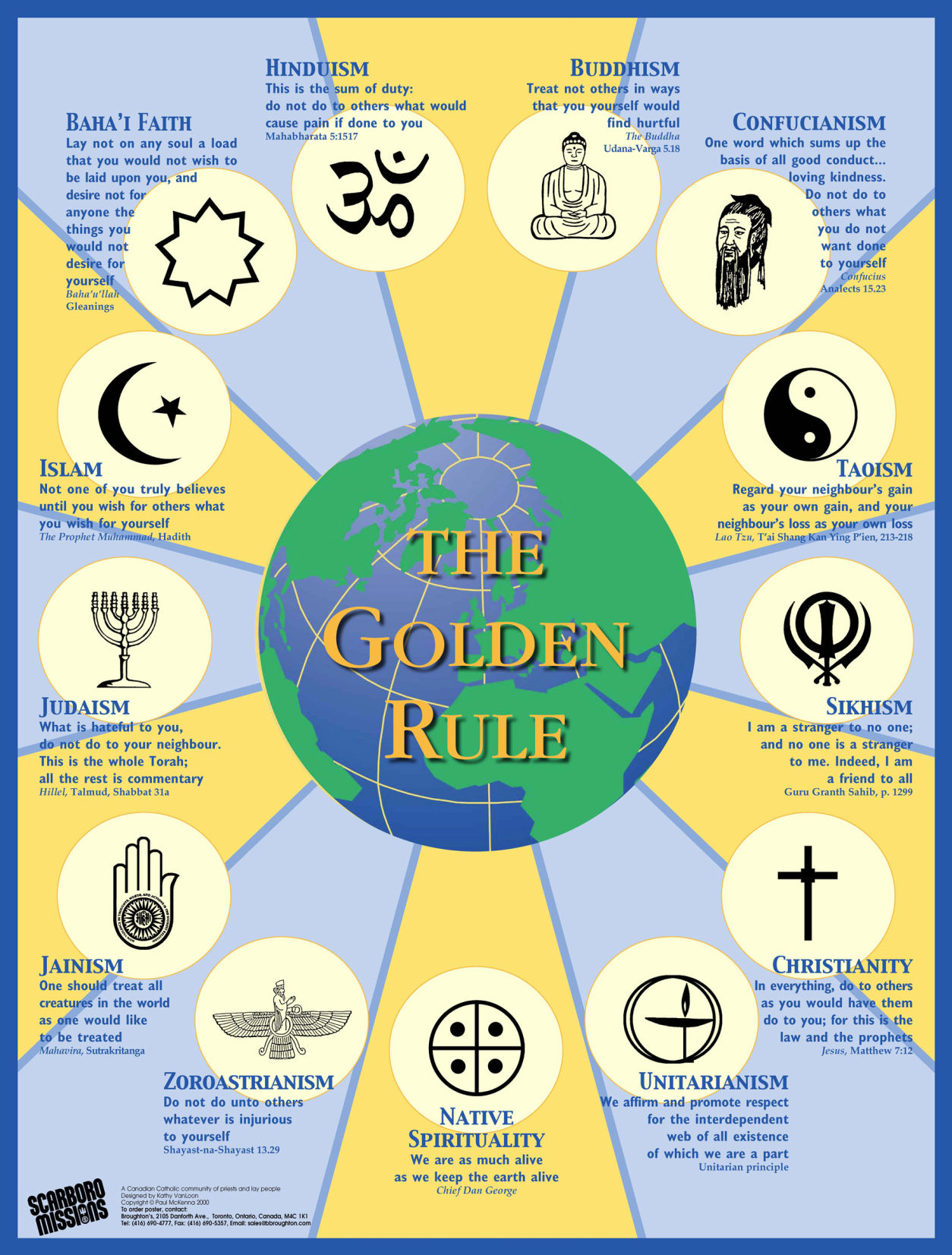The Rev. Matthew Ristuccia, Stone Hill Church, Princeton
"Do for others what you would like them to do for you."
Jesus of Nazareth, as recorded in the Gospel of Matthew 7:12.
Democrats, do you think God loves Republicans? Republicans, do you think God loves Democrats? And does it even matter to you whether he does or not?
Of all the 101 directions I could take in writing about the Golden Rule in the Christian tradition, I think I would waste your time and mine if I didn’t draw the line between it and our cultural moment. Needless to say, it is a moment of contentious politics playing out against the dismay, disillusionment, and disgust of many in Princeton.
I’ll get to that in a couple paragraphs, but first let me pull back. The Christian form of the Golden Rule quoted above, as taught and lived by Jesus of Nazareth, sank deep into the consciousness of his followers. Jesus’ simple statement, “do for others what you would like them to do for you,” permeates all kinds of early church writings. One in particular has been on my mind. It is a two-sentence appeal from the Apostle Paul, a leader in the early Christian movement. In his letter to believers in the Greek city of Philippi, Paul writes (~61 AD): “Do nothing from rivalry or conceit, but in humility count others more significant than yourselves. Let each of you look not only to his own interests but also to the interests of others. “
His words provide an unexpectedly fresh spin on the Golden Rule. Paul connects it to what I call true humility. There is a lot of false humility out there. The most common form is to pretend you are not something that you are. For instance, if asked “are you intelligent,” it would not have been humility for Einstein to have answered, “no.” Come on! That’s just useless self-deprecation. True humility is much more like self-forgetfulness: not getting hung up on yourself, but instead using who you are and what you are for the good of those around you.
So back to Paul, Philippians, and politics. In the text I quoted, Paul is advising his friends to adopt self-forgetful attentiveness. You could expand his words this way: “ Treat others the way you would like them to treat you. Don’t be proud or dismissive. Do you like to be treated that way? Of course not! Instead, embrace true humility. Consider other people important — particularly those toward whom you would otherwise be flip. Listen to them. Pay attention to what matters to them. Don’t forget what matters to you, too. But strike the balance. Be self-forgetful, especially in relation to those with whom you disagree. OK?”
The Golden Rule, as seen through this Philippian lens of true humility, still speaks. It has been my experience that self-forgetful attention to others makes all the difference in the world.
Take, for instance, the pressing issues of race relations in our country. Debby Irving, in her superb book “Waking Up White,” describes this kind of attention as “an amazing tool for learning and healing.” She goes on to admit, “I’ve been socialized to talk at someone, to prove a point or show off how much I know.” That’s sure true of me. How about you? It’s in the air we breathe here in Princeton.
My close friend and colleague, Tone Bellamy, stands out as a counter-example. He grew up in Trenton, and yet he has devoted significant time over the past six years to learn what an affluent white suburban guy like me thinks and feels. And I’ve enjoyed immensely the process of learning from him as well. We were worlds apart, but there has been humble “Golden Rule” listening and healing and growing.
I don’t think it’s at all naive to propose that we inject the same sort of humility into our political life together. In so many ways, Princeton leads the nation. During this contentious election year, what if we were to set the pace for a fresh round of civility? What if we carried into our candidate disagreements some self-forgetful listening? What if we could practice the Golden Rule, whether in its Christian form or whatever other form we have heard it? What if we really did listen to others the way we would like them to listen to us? That possibility is what the Golden Rule in Election Year 2016 means to me.
The Rev. Dr. Matthew P. Ristuccia is senior pastor of Stone Hill Church of Princeton.

